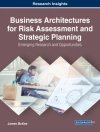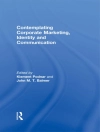Tourism, with its wide-ranging impact, needs to be managed effectively – but how? This book advocates taking a business approach to tourism that encourages greater collaboration between stakeholders in the practical assessment of tourism options. The approach places key business management functions and stakeholders at the forefront of tourism initiatives. The business management functions of planning, organising, leadership and control are the filters through which tourism opportunities are viewed, while the stakeholder groups of customers, residents, industry and government set the agenda for appropriate tourism development.
Tourist destinations must engage in realistic assessments of their abilities to meet the needs and expectations of tourism stakeholders and then act on these assessments so their goals and objectives can be achieved. A new model for bridging stakeholder gaps is presented as a template for how communities can understand and make the most of their tourism resources. The Bridging Tourism Gaps Model is a practical tool to help destinations focus on the important factors in developing and maintaining tourism as a beneficial and vital part of their communities.
This book builds on the success of Tourism: A Community Approach and the subsequent tourism planning experiences of both authors to advance strategic planning in tourism.
Inhaltsverzeichnis
Acknowledgements
Part 1: Prologue
1 Definitions, Theory and Practice
2 Key Business Management Functions
Part 2: Key Business Management Functions in Tourism
3 Planning
4 Organising
5 Leadership
6 Controlling
Part 3: Tourism Community Stakeholders
7 Customers
8 Industry
9 Residents
10 Government
Part 4: A New Paradigm
11 Working Together
12 Bridging Tourism Gaps Through Strategic Management
Epilogue
Appendix: Strategic Tourism Planning Resources
Bibliography
Index
Über den Autor
Professor Peter Murphy, Foundation Professor and Head of the School of Tourism and Hospitality, La Trobe University, Melbourne, Australia, has over 30 years experience as a tourism researcher, professor and consultant. He has served on several tourism boards including Tourism Victoria in Canada and Bendigo Tourism in Australia and has been involved in numerous strategic planning exercises and community studies. He has received the Association of American Geographers’ Roy Wolfe Award for contributions to tourism research (1992) and was elected to the International Academy for the Study of Tourism (1995).
Ann Murphy, AICP, Ph D Candidate, Law, University of Melbourne, has worked as a tourism planner in British Columbia and the Florida Keys. She oversaw a Keys-wide survey of residents’ attitudes towards tourism and her planning contributions were recognised by a resolution of the City of Marathon Council (2000).












